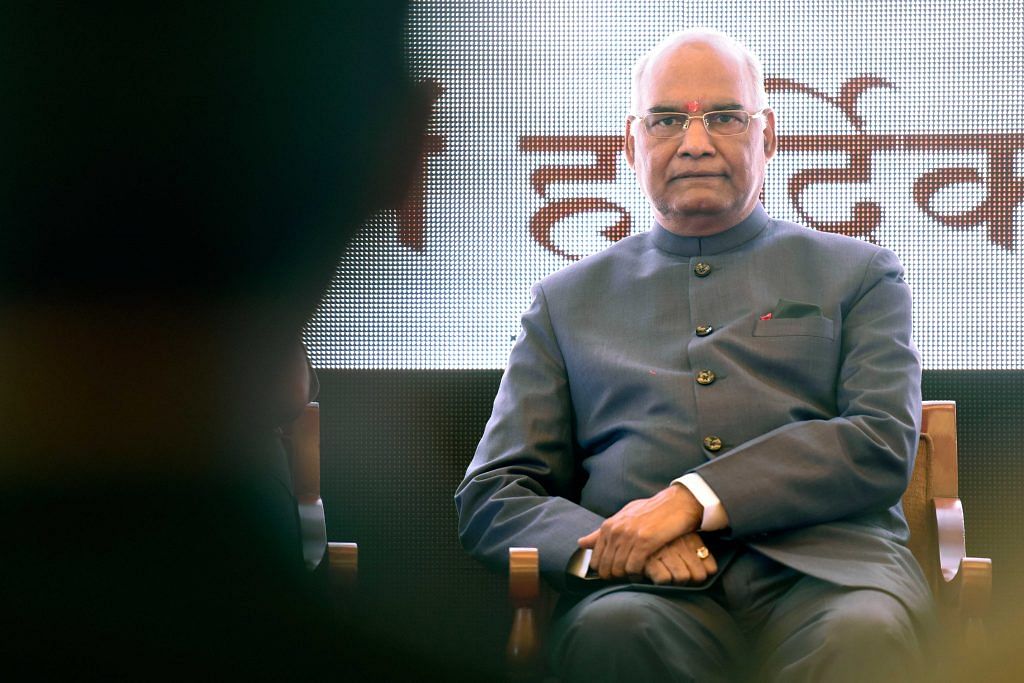Ministers from Andhra Pradesh, Kerala, West Bengal, Puducherry, Punjab and Delhi will submit a memorandum on the changes they want in the terms of reference.
New Delhi: Unhappy over the terms of reference of the 15th Finance Commission, six states and union territories’ finance ministers have decided to take their protest to the President of India.
Ministers from Andhra Pradesh, Kerala, West Bengal, Puducherry, Punjab and Delhi — all ruled by opposition parties — will meet President Ram Nath Kovind at 5 pm Thursday to submit a memorandum on the changes they want in the terms of reference.
Representatives of seven states and union territories had previously met at Amaravati, Andhra Pradesh’s new capital, on 14 May and discussed their grievances with the 15th Finance Commission.
Problems with the commission
The southern states of India, for some time, have been complaining about the change in the year of the census used in the terms of reference to 2011 from 1971, as this will impact the share of taxes they receive from the Centre.
Since 1971, the population of the northern states has grown much faster than the southern states, and so, according to the new terms of reference, the latter stand to lose a significant share of central funds in taxes and resources allocated to them.
However, states like West Bengal, Goa, Himachal Pradesh, Odisha, Assam and Punjab have also seen a decline in their population growth. So, they also face the danger of losing a share of central taxes and resources.
The southern states are also unhappy with the fact that despite being successful in managing population growth, they are being discriminated against because of the increase in weightage given to the 2011 Census in the 15th Finance Commission.
In the 14th Finance Commission, the weightage given to the 2011 census was 10 per cent while 1971 had a 17.5 per cent weightage.
Significance of the 1971 Census
The 42nd amendment to the Constitution in 1976 mandated a freeze on population figures, and the 1971 Census was used for devolution of taxes since. This was done to give an incentive to the states to reduce their population growth without losing the number of Lok Sabha seats in each state.
This was mandated for the next 25 years, but in 2001, Atal Bihari Vajpayee’s NDA government extended this period for another 25 years to 2026.
